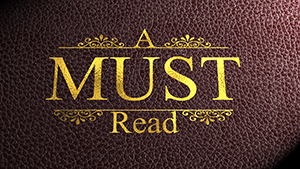Roy Barzilai’s “The Testosterone Hypothesis: How Hormones Regulate the Life Cycles of Civilization”
 This week I am excited to review a book by Roy Barzilai, author of one of my favorite philosophical/sociological works: The Objective Bible: Western Civilization’s Struggle for Philosophic Liberation from a Herd-Mentality and Pagan Mysticism. In his new book, The Testosterone Hypothesis: How Hormones Regulate the Life Cycles of Civilization, Roy advocates a more modern approach to understanding the various sciences and their endeavor to understand human nature. In our science-driven Western world, there lingers the concept of mind-body duality, where the mind, or consciousness/soul, is comprised of a fundamentally different essence than our physical bodies. This assumption, which is ingrained in the roots of Western thought, and, therefore, the sciences that developed under this thought, has created a dilemma for human development and understanding. Beyond muddling our convictions in the studies of biology and psychology, mind-body dualism has inadvertently encouraged a secular mindset when it comes to various fields of study. History, biology, psychology, sociology, chemistry, and philosophy (to name the, arguably, biggest offenders) combine to tell the tale of humanity as a whole, though the fields are often regarded as separate (and sometimes are even considered rivals among researchers).
This week I am excited to review a book by Roy Barzilai, author of one of my favorite philosophical/sociological works: The Objective Bible: Western Civilization’s Struggle for Philosophic Liberation from a Herd-Mentality and Pagan Mysticism. In his new book, The Testosterone Hypothesis: How Hormones Regulate the Life Cycles of Civilization, Roy advocates a more modern approach to understanding the various sciences and their endeavor to understand human nature. In our science-driven Western world, there lingers the concept of mind-body duality, where the mind, or consciousness/soul, is comprised of a fundamentally different essence than our physical bodies. This assumption, which is ingrained in the roots of Western thought, and, therefore, the sciences that developed under this thought, has created a dilemma for human development and understanding. Beyond muddling our convictions in the studies of biology and psychology, mind-body dualism has inadvertently encouraged a secular mindset when it comes to various fields of study. History, biology, psychology, sociology, chemistry, and philosophy (to name the, arguably, biggest offenders) combine to tell the tale of humanity as a whole, though the fields are often regarded as separate (and sometimes are even considered rivals among researchers).
In The Testosterone Hypothesis, Barzilai argues for a multi-disciplinary understanding of history, philosophy, and sociology, hypothesizing that testosterone is one of the most driving forces behind the entirety of human development. The layout of the book is easy to follow, beginning with an explanation of the mind-body problem before moving on to the testosterone line of hypothesizing. Barzilai provides a multitude of sources citing the various roles testosterone plays in aging, combating depression, motivation, and the influencing of all manner of behavior. Barzilai then shows the dwindling presence of testosterone in current Western society, and explains the negative repercussions of a society’s cultural elimination of testosterone-driven attributes.
I loved The Testosterone Hypothesis, plain and simple. Barzilai has managed to weave a fascinating study across multiple scientific fields, all backed by rather convincing evidence. The writing is clear and analytical, and only becomes cumbersome in a few sparse places where a significant amount of information is being juggled at once. A word of warning, though: the writing is analytical. While you won’t see long, drawn-out proofs in The Testosterone Hypothesis, Barzilai is careful to tie his argument together at the seams, which may make this a slightly difficult introduction to the world of philosophy if readers aren’t familiar with the writing style. Luckily, the arguments found within this book aren’t too difficult to follow, so tenacious first-time philosophers have more than enough to gain to warrant a read. Even if you don’t completely accept Barzilai’s main argument on the magnitude of testosterone, this book nicely shows a new approach to analyzing human behavior that will, hopefully, be of major importance in the coming years: multi-disciplinary analysis. We are fast approaching a time when secular studies into the human experience will be inadequate, and it is relieving to see this issue brought to public attention. If you haven’t read Roy Barzilai’s The Objective Bible, I would recommend reading it first, as many themes are introduced in that book that are expounded upon in this one, though doing so isn’t necessary. My review of The Objective Bible can be found in the A Must Read archive. If you have even a moderate interest in philosophy, sociology, biology, or history, Roy Barzilai’s The Testosterone Hypothesis: How Hormones Regulate the Life Cycles of Civilization is a book I urge you to check out. The arguments found within are solidly-reasoned, meticulously cited, and present a fascinating, and natural, way to approach studies that will define how humanity views itself in the coming years. I hope you enjoy your time with The Testosterone Hypothesis as much as I did, and I eagerly await more from Barzilai.









